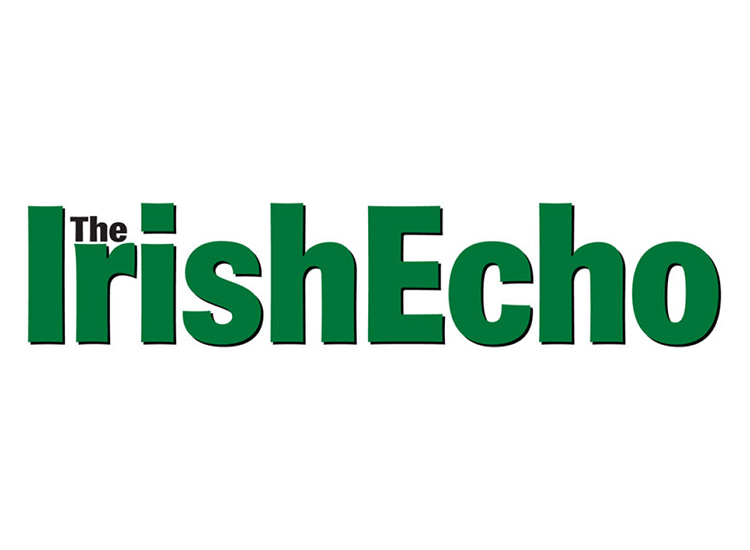Taoiseach Enda Kenny speaking in England. RollingNews.ie photo.
By Evan Short and Ray O’Hanlon
In the final days running up to tomorrow’s UK referendum on European Union membership, Irish political leaders including Taoiseach Enda Kenny, Foreign Minister Charlie Flanagan, and President Michael D. Higgins have been making the case for continued UK members of the 28-nation bloc.
Mr. Kenny has called on Irish people living in the UK to vote to remain in the European Union.
With tomorrow’s vote too close to call, Mr. Kenny was in Glasgow last Friday attending a British Irish Council meeting.
Also in attendance were representatives from the British, Irish, Northern Irish, Scottish and Welsh governments, as well as delegates from the Isle of Man, Jersey and Guernsey.
The Irish government has made no secret of its concerns over a vote in Britain to leave the European Union.
Speaking after the meeting, and flanked by Scottish First Minister Nicola Sturgeon and the North’s deputy First Minister Martin McGuinness, the taoiseach talked about the closeness of relations, socially economically and politically between the two islands and said that a leave vote on June 23 would see a “massive change.”
“I have the privilege to sit around the table at the European Council and Britain has always been a strong sensible voice there. We would like that to continue,” he said.
He said that if Britain voted to leave the EU this week “there would not be any representative there to speak for Scotland, England, Wales or Northern Ireland” at the European Council.
The taoiseach also called on the Irish in Britain to vote to “Remain.”
“We feel it is important to speak to the Irish community who are entitled to vote in the referendum and to say to them unashamedly that we believe very strongly that they should vote to stay in as a member of the European Union.”
The day before, Mr. Kenny was in Liverpool where he again called on Irish people to vote to remain in the EU.
Speaking on RTÉ he said the status of Irish people living in Britain would change the day after the referendum result, if Britain voted to leave.
“We’ve had the common travel area since 1922,” he said.
"That has worked very well for Ireland and Britain, for both countries when we were outside the European Union and when we were both inside the European Union.
“It has not been tested when one is outside and the other is inside and that’s an unknown area. I’ve raised this at the highest level with Downing Street, they understand that.
“And while we would work to continue to have a common travel area, you never know what obstacle might arise or might be put in the way of that.”
Mr. Flanagan, on the eve of the UK vote, told the Irish Senate, An Seanad, that Ireland wanted the UK, “as our friend, closest neighbor and partner, to remain a member of a reformed EU.”
Said Flanagan in part: “This is a view which enjoys near-unanimous support within both Houses of the Oireachtas, though I recognize and respect that there is a different point of view.
“The reasons underpinning the government’s position will also be familiar to you - these include important considerations in relation to our economy, Northern Ireland, the Common Travel Area and of course the EU itself."
“Over the last three months or so as the formal campaign was underway, you will have noticed that the Irish government – complemented by active engagement by civil society here in Ireland, the Irish community in Britain and leading opposition figures – has made its own contribution to the UK referendum debate.
“We respect, fully, that the decision ultimately lies with the UK electorate, but we strove to put across the Irish perspective, including through a program of fourteen visits at government level to Britain and Northern Ireland since the beginning of April.
"As I stressed during my visits to Belfast, Derry and elsewhere, the fact that Ireland is the only EU Member State that shares a land border with the UK was a particularly compelling reason why the Irish government felt it was obliged to ensure our perspective was known and understood.
“As a minister who has spent a considerable period of my time focused on the need to support and sustain political stability in Northern Ireland, I am acutely conscious of the negative implications of a Leave decision on the progress that has been over the last two decades.
"Polling day is tomorrow and the UK electorate will of course have the final say on the matter.
“Polls suggest both outcomes are equally possible and the government is as prepared as it possibly can be for both outcomes.
“Whatever the result, the government will strive to protect and promote Ireland’s key interests.”
President Higgins has, meanwhile, described the EU as being as “a point of crisis” though he did not directly refer to the Brexit vote.
“We have so much work to do to ensure that our European Union comes again to represent, in the eyes of its citizens, a model of balance between market, society, and the environment, rather than a mere vehicle for the extension of free trade,” he said.
“Europe cannot really go on as it is now, but it is important that people be in Europe and that people be fighting for the new models and that people be offering constructive suggestions.”









